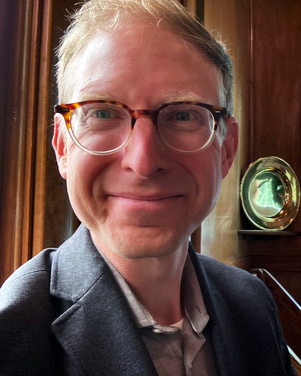A few weeks ago, meeting with colleagues from across the country about developing the church’s capacity to participate in God’s mission, our discussion took a temporary detour into the biggest challenges facing the church in Canada. As strange as it might at first sound, our collective lack of imagination was the roadblock named repeatedly.
In the late 1970s, Old Testament scholar Walter Brueggemann offered a gift to the church by publishing the Prophetic Imagination. Brueggemann’s troublesome argument was (and is!) the world, including the church, is beset by a stagnant royal consciousness in which, “everything is already given” and a new future cannot be envisioned further. When we believe the pinnacle has been reached, what more is there to dream? In Brueggemann’s keen biblical and social analysis, he notes the death-dealing confluence of an economics of affluence and a politics of oppression, upheld by a controlled, static religion in which God becomes domesticated—another piece of furniture in our tidy little world. In such a world, God is no longer transcendent, no longer accessible to ordinary people, no longer wild, no longer free.
Meeting with these colleagues, discussing common challenges, we finished each other’s sentences as we rehearsed the stories heard at many a church potluck or visioning session. Across the country, even by the waning light of 2024, many of us continue to long for the church in its power. We play and replay our congregation’s highlight reel, those happy days of growth and prosperity that transport us back to the postwar years.
In the days following the Second World War, Canada grew in number, prominence, and influence, becoming a trusted middle power on the global stage. The nation’s economy (and our personal wealth) grew by leaps and bounds. Churches bustled with relentless activity. The institution expanded. New programs flourished. Older buildings were upgraded and new buildings built in rapidly growing suburbs. Congregations marked it all with a tidal wave of baptisms and confirmations. Each appeared as a marker of the church’s rightful place in Canadian society. But along came the 80s. The 90s. The 2000s.
For the longest time, our affluence allowed us to ignore the pain and eat our way around it. We were able to dismiss the cries of the marginalized. We rehearsed the promise of God’s immanence and accessibility (most notably in the Eucharist), becoming unaware of the possibility of a free God’s abrasiveness, absence, banishment, and transcendence. When these coping mechanisms began to fail, when we woke up to the reality accelerated by global pandemic, we looked at the church’s precipitous decline and wondered (having measured success in terms of people, influence, and financial power) if this downward trend is synonymous with the turning of God’s favour.
And so we turn to the time-tested tools we hope will satiate our feelings of emptiness and loss, tools that Brueggemann describes in this way:
- A management mentality focusing on problems to be solved, dismissing the divine mysteries that deserve honour. As with Solomon and the temple, this is not marked with great leadership, heroic battles, or bold initiatives, but the anxious cost-accounting of a management mentality
- The legitimation of an “official religion of optimism,” blindly trusting that God has no business but to maintain our standard of living, so as to ensure God’s own comfortable place in the palaces and temples built by human hands
- Pushing neighbour to the side, no longer seeing the stranger and outsider as vital to our history, survival, and identity, believing that we can live outside of history and relationship as self-made people.
Each of these dynamics play out in our struggle to confront the reality before us, the reality of God’s freedom and transcendent mystery. God is knowable, yes, but God will not be nailed down. The minority report of the biblical prophets, the report that questions the actual goodness of the “good old days,” reminds us that God chooses to exercise God’s freedom in love, When God acts, it is for the flourishing of entire communities, indeed, the whole of God’s good Creation that exists in a dynamic web of relationships amongst God, People, Earth, and the Human and more-than-Human Neighbours who call this place home.
It is God’s utter mystery, transcendence, and unknowability—the very things we have tried to do away with—that makes prophetic imagination necessary.
Tempted as we are to look for scapegoats responsible for our disorientation and changing fortunes (avocado toast, immigration patterns, liturgical style, worship music, secularism, Sunday sports, working parents, and young people to name a few), what we need are prophets bearing witness to a church and a world altogether different from the one we currently inhabit. “That world, given mostly in poetic imagery,” Brueggemann writes in a recent article “is a world where God governs with a will for justice and compassion.” It’s a world where God speaks, where God acts, where God shows up with ready willingness to create “joyous viable conditions for life.”
In God’s dream, “the greedy toxic ways of our present world stand under prompt judgment,” for they have managed “to eliminate God as a serious player and a real character.”
Our church’s greatest struggle isn’t money. It’s not numbers. Our church’s greatest struggle (and deepest need in this moment) is one of imagination.
No longer can we conflate numeric growth with God’s favour, when all along God has been pointing us towards faithfulness, towards right relationship, towards creating thriving communities of justice and joy, compassion and peace. Whenever someone points in this direction, Brueggemann notes, someone representing the status quo comes out of the woodwork demanding to know if such freedom is realistic, politically practical, or economically viable. And yet, Brueggemann suggests, “we need to ask not whether it is realistic or practical or viable but whether [such a future] is imaginable.”
If we can’t imagine such a future, let me suggest a few who can. What the church needs more than anything at this moment are: artists, poets, and musicians.
The biblical prophet, like those we need today, “do not ask if the vision can be implemented, for questions of implementation are of no consequence until the vision can be imagined.” If there is one thing we can do in our communities to address the current crisis, it’s this: unleash the dreamers and stand back. We need to pay attention to the visions of our dreamers, mystics, artists, poets, and musicians, whether they are part of our congregations or not.
What is it the prophets imagine? What do they see of the church that does not yet exist?
As we listen to them, may we turn ourselves toward mutually transforming, soul-searching prayer. Fed by daring and prophetic acts of imagination, may we come alongside the prophets and the artists amongst us, and humbly ask, “how might we work together, with God’s help, to make such a beautiful world possible?”


